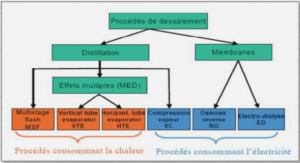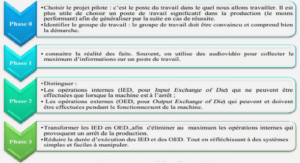Women in African Women’s Writings in Buchi
Emecheta’s Second-Class Citizen, Double Yoke
Poverty and the impact of money
Poverty is strongly correlated with colonialism in Africa. Colonialism occurred in the continent in an unprecedented context as the White settler came to Africa with many purposes. As alluded to above, the first step had been the civilization project, followed by the imposition of power. The outcome of colonialism has been negative for Africans. It has dried up the economy of a continent which had been one of the richest on earth. Historians have been ambivalent regarding its outcome, but theories depend mostly on the stakes involved and the writers‟ commitment to Africa. Hence, on the one hand, we find historians who wrote from the outside, whose theories ultimately focused 85 on their personal feelings and interests. On the other hand, other historians based their writings on the inside. Walter Rodney is one of such Afro-centric writers who strongly believed that colonialism had robbed Africa of its resources. His book, How Europe Underdeveloped Africa, is an attempt at deconstructing the colonial discourse. He starts from the collective conclusion drawn by most Western thinkers who state that colonialism is somehow beneficial to Africans. Rodney does not corroborate their quick conclusion and pessimism, but instead, he retaliates and argues that although the white man has built up some facilities like schools, hospitals and rail ways, it has been to the peril of Africans. On the contrary, colonialism has squeezed the lack continent of its vital substance. He decries the dearth of technology in agriculture that has slowed down the sector. To him, the lack of technology is paradoxical since the same white man who colonized Africa had been on the forefront of the industrial revolution the European continent experienced in the nineteenth century. Moreover, the same white man had leaned upon the same technology to produce a quantity of goods that was beyond his needs: “Of course, in 1885 Africans did not have the technical know-how which had evolved in Europe during the eighteenth and nineteenth centuries. That difference was itself partly due to the kind of relations between Africa and Europe in the pre-colonial period. In a few places, such as South Africa and the Rhodesians, this was due to specific racial discrimination in employment, so as to keep the best jobs for Whites […]. The most decisive failure of 86 colonialism in Africa was its failure to change the technology of agricultural production.”86 Rodney‟s conclusion is all the more informative as it accounts for the capitalist causes and some colonial writers‟ commitment to colonialism. The White man‟s arrival in Africa is purely grounded in economic interests through the imposition of power and culture. Though the Guianese historian‟s insight is helpful in this chapter, we focus on the impoverishment of the continent in relation to colonialism and its impact on women‟s condition. In fact, Buchi Emecheta and Tsitsi Dangarembga‟s works are deeply embedded in the postcolonial context. Consequently, our study cannot depart from it, for the simple reason that the novels under review give a particular concern about poverty which is at the social and family level. But it also hits individuals, men as well as women, though the latter hold the lion’s share. Emecheta and Dangarembga use poverty and misery to pin down women‟s entrapment in relation to their status. Lethargic poverty pervades the fabric of society as it has a great impact on the way people interact, especially with women. Patriarchy and traditional conventions that feature many African societies have an impact on women‟s development. But, the crux of the problem is its relation to poverty that has resulted from colonialism and totally disturbed the continent. This is clear, since in pre-colonial Africa, the main activities the head of the family depended for a living were farming, hunting, fishing and trade, but villagers used bartering to quell economic disparities as well. Droughts were more bearable with the leaders‟ provisional insights, but with the advent of colonialism the fabric of African economy was torn upside down. This had a great impact at continental and national levels, to say nothing of the impact on families which deeply fell apart: “In many parts of the African continent, there arose what is known as „symbiosis‟ between earning their living in different ways- which really means that they agreed to exchange goods and coexist to their mutual advantage.”87 The unprecedented situation of colonialism had ultimately disrupted the community‟s social and economic balance. At the family level, men, as heads of households, have to go beyond their limits to meet their needs. This has been hard for them, since many people practiced farming activities to feed their families. Working in the fields required skill and technology. The technology most Africans used was obsolete. Therefore, the need for an efficient workforce in the fields became crucial for male farmers to boost production.
Illiteracy and personal fulfillment
Before delving in the subject, it is essential to acknowledge women‟s place in Africa in relation to entrepreneurship and social commitment so as to leave no doubt as to our intentions. Scholars are controversial about the true position of women in the pre-colonial and colonial context, but some theorists argue that women had a key role in the history and development of mankind in particular and the emergence of African nationhood in general. In pre-colonial Africa, ordinary women, say, illiterate, were not lagging behind; they, too, were at the forefront of development and leadership. They were entitled to have assets, like land, and even held key positions in some kingdoms. Basically, it is colonialism that brought about the adversity and austerity measures that induced women to lose ground and see their status degraded. In the light of this, we can deduce that, given the historical context prior to colonialism in Africa, the ambitious and entrepreneurial woman is not necessarily one who enjoyed a good level of formal education. In other words, countless women got prestige and respect before the advent of colonialism without acquiring a formal training. In fact, modern African literature has always acknowledged and retained the history of glorious women, who, through perseverance and entrepreneurship, have succeeded in distinguishing themselves in the socio-economic fabric. A good example is Ambiguous Adventure. Cheikh Amidou Kane‟s novel may be an epic, but it partly shows the place of women in African history. The Most Royal Lady is a symbolic woman, an icon in the Diallobé family lineage, thus totally opposed to the oppression and marginalization of women. She is empowered by tradition, because she belongs to the noble lineage and is 107 involved in the Diallobé‟s council of elders, her decision to accept and sending children to school is central in the future and cultural survival of her people. The conversation between her and the “Master of the Glowing Hearth” about the issue of joining the Western school is very telling: “The whole country lies under your great shadow.”107 The passage reveals the woman‟s authority, though she is illiterate. This shows once again that, in pre-colonial Africa, women had a say on social, political and economic affairs. However, with the climax of colonization and the new trend of globalization or internationalism, the position of women deteriorated. If we agree that women as wives, housewives and nurturers had better opportunities in pre-colonial Africa, we need to ask then what were the impacts of illiteracy on their self-development in the postcolonial context. In all the novels concerned, illiteracy is central. They deal with illiterate women, as well as illiterate men. In fact, an illiterate person is: “someone who has not learnt to read or write.” For a person to be able to read or write he/she must have been educated or gifted to acquire such abilities. But, we have already mentioned that with patriarchy and the impact of poverty, girls‟ education is generally compromised. This actual fact accounts for the overwhelming number of illiterate women in postcolonial Africa, which does not escape the two women writers‟ notice. Besides, they depict some female characters that are denied of knowledge acquisition and undergo a double oppression: not only are they deprived their basic human rights, but are subjugated to domesticity. More often than not, illiteracy is associated with domesticity, for countless women who are considered as housewives are identified as illiterate. Thus, illiteracy has a negative impact on women‟s subjugation. The two 107 Cheikh Amidou Kane, Ambiguous Adventure, op. Cit, p. 33. 108 concepts rebound in Emecheta‟s and Dangarembga‟s fiction in particular and among women writers‟ in general. It is a great literary feat for them to fight their social injustice. In their novels, the two female writers show through characterization, how women‟s ambition is hampered by illiteracy. They describe women caught between domesticity and illiteracy, as between the hammer and the anvil. To some extent, illiteracy shortens women‟s outlook on the world as it makes them more submissive and less entrepreneurial. In Double Yoke, although the focus is on literacy as a means to selffulfillment, Emecheta gives a particular attention to illiteracy as a counterpoint that handicaps women‟s progress. Ete Kamba‟s mother, for example, is illiterate, opposed to the other characters in the novel. Presumably, she is portrayed like an ordinary and model woman. She is seen as exotic, yet fragile. As a woman who lives in a sophisticated and emerging country, this accentuates her entrapment. This is to say that, although the main protagonists, Ete Kamba and Nko, are trapped in various shackles, his mother seems more prejudiced, since her illiteracy lies on ignorance and induces her to be more lenient towards gender- oppression. Ete Kamba‟s mother is a typical subjugated woman. She has no spare time for herself. Servitude never leaves her as it takes most of her time. Emecheta hints at her exploitation, but through her character, it also encompasses the exploitation of all the village women. They devoted themselves to domestic work and farming, which takes them three quarters of their time and energy. These women do not have a full grasp of the value of time, to say nothing of their own lives and future. Engrossed in their different tasks, they can hardly branch out into a lucrative business that could enrich them. On top of that, they are illiterate. In fact, their lack of basic education facilitates their submission and drowns any hope of entrepreneurship in them. Instead, they seem to accept their lot as second-class people. By dint of working and serving men, women 109 generally forget themselves. They become totally tolerant towards them. For instance, little does it occur to Ete Kamba‟s mother to challenge her husband and think of her own professional development, for a change. She is always ready and keen on serving and servicing men: “His mother (Ete Kamba‟s) would serve them, the men of the house on a special collapsible table they had bought from a carpenter in Calabar. She would then spread on it her one clean table cloth. Then she would bring their food, mainly garri and soup, in very clean but plain imported plates and a metal bowl of water to wash their hands with. She usually left the room after saying, „Please enjoy your dinner.”108 Ete Kamba‟s mother treats her husband like a real king, and goes beyond her limits to please him. She meticulously chooses the plates she serves him with. She is like a butler on duty in his master‟s house. The only difference is that she serves willingly and joyfully, and expects nothing in return. Everything seems natural to her as she is blinded by her joy as a mother, though muted in innocence by her husband‟s chauvinistic character. She accepts his dominance without resistance. However, Emecheta questions some traditional women‟s attitudes about their lives. They do not think of changing their sordid living conditions, but rather, take their secondary status as a normal situation. They accept the stereotypes that are enforced upon them by men and society without daring to claim their rights for themselves. The neutrality and quiescence of such women is clearly perceivable in the concept of liminality. From a psychological point of view, liminality means the threshold between the sybaritic and the subliminal. It is the limit zone where sensation is no longer active. It is mitigated by a barrier commonly known as the threshold 108 Buchi Emecheta, Double Yoke, op. cit, p.18. 110 area. If we apply it to the women‟s lot and their personal endeavor, we infer that women‟s sensation is always overtaken or mitigated by man‟s supreme power. In Double Yoke, Emecheta sees the fidgety character of Ete Kamba‟s mother as a result of her illiteracy. In the woman‟s cognitive perception, there is no room for her to undertake any kind of action that might bring about controversies with her male counterpart, though purely psychological. In such a situation, her ignorance, which is a resultant of her illiteracy, should not be discarded as it has a big impact on her fragile character. Visibly, illiterate women in African women writers‟ works are generally portrayed as ignorant. They lack initiative and are prone to show less commitment to their low status. This justifies the “oppression” they undergo and it compromises their ambitions. Such an attitude is pure stoicism which goes hand in hand with pacifism. It is man‟s ability to accept misfortune and all the evils that befall him as his fate or a divine decree. It does not advocate action or resistance of any kind; be it verbal or physical. But, although stoicism is a quality in a harmonious society, it does not enhance women‟s promotion but paves the way for totalitarianism. In fact, it is this stoic nature of most traditional women that ultimately leads to their alienation and social degradation.
Introduction |



